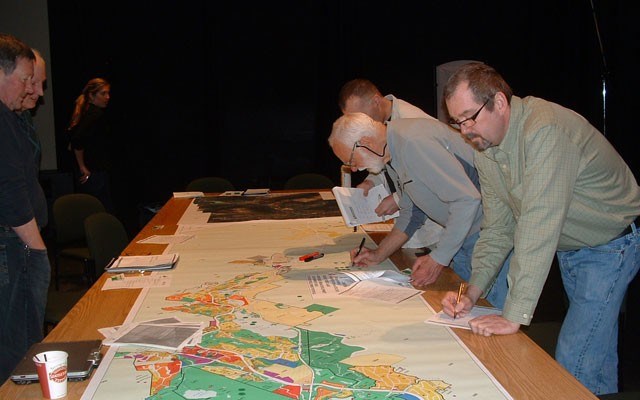The province has filed a response in the Supreme Court of B.C., defending its approval of Whistler's Official Community Plan.
The response comes three-and-a-half months after the petition from Squamish Nation and Lil'wat Nation, and on behalf of the members of the Mount Currie Indian Band, was first filed, asking the court to quash the just-approved OCP bylaw.
Whistler was also named in the court petition.
The municipality, however, has yet to file its response in court. When asked about the deadline for filing, the municipality's communications manager Michele Comeau said: "There is no firm date set."
In its 11-page response, the province outlines why the OCP Bylaw is not an infringement of Squamish and Lil'wat's asserted aboriginal title and rights claims, as claimed in court.
"The Petitioners (Squamish and Lil'wat) have adduced no evidence to demonstrate that the OCP Bylaw could result in adverse impacts upon the Petitioners' claim of Aboriginal title and upon their ability to exercise their asserted Aboriginal rights," states the response.
Among other things, the nations are looking for an exemption from Whistler's unique cap on bed units, which governs all future development in the resort boundaries, in order "to pursue their preferred form of economic development."
The province claims that the OCP has provisions in it where developers, including First Nations, can get approvals for developments that go beyond the bed cap, if it demonstrates "extraordinary benefits" to the resort community and is considered through a community engagement process.
The lawsuit also sheds more light on the 2007 Shared Legacies Agreement, negotiated as part of the 2010 Olympic Games.
Under that agreement, the Crown transferred 300 acres of land to the nations, as well as 452 bed units.
The province states in its response that Squamish and Lil'wat agreed that any development would be subject to all RMOW bylaws despite "any rule of law, court decision or enactment to the contrary that would exempt the Petitioners because of their Aboriginal status.
"The OCP Bylaw is a valid RMOW bylaw as contemplated by the Legacy Land Agreement and the Petitioners are therefore contractually bound by the terms of the Legacy Land Agreement. Further, the Petitioners are stopped from demanding that the OCP Bylaw be quashed or set aside as the foundation of their complaint is grounded in the very terms they agreed to in the Legacy Land Agreement."
In response to claims that there wasn't adequate consultation with First Nations through the OCP process, the province states:
"Insofar as the Crown addressed the potential adverse impacts of the OCP Bylaw, the scope and extent of the duty to consult on these facts is at the low end of the scale, and the consultation which occurred, as demonstrated by the full record, was more than adequate to discharge the duty."
In May, the municipality planned to bring a budget amendment forward in the summer to cover the legal costs of this lawsuit, and others filed in court this past year.
Said Comeau: "At this time we are considering what the total costs might be, when they will be incurred and if additional budget is required in 2013 and future years."




